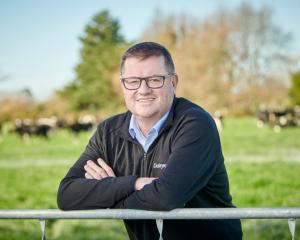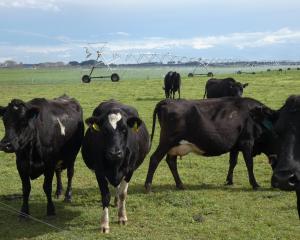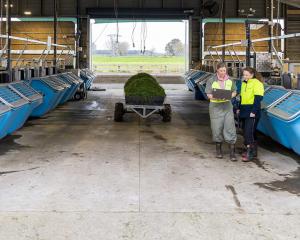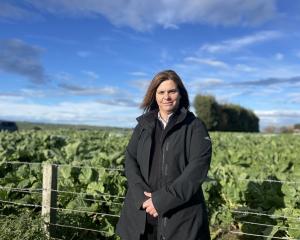
It is understood Southern Centre Dairies in Southland, owned by Alfons and Gea Zeestraten, which is believed to be the first farm infected, has been using a Waiheke Island-based vet clinic.
Vets on Waiheke manager Stephen Gilmore confirmed to RNZ's Checkpoint programme that his wife Alexandra was the vet responsible for the Zeestraten herd, and had been for two years, and that they tried to make six-monthly visits to the dairy farming operation.
In a statement, NZVA president Peter Blaikie said the association did not know the details and could not comment on the specific situation.
But a "real and regular" veterinary presence on farm was the greatest biosecurity protection for the early detection of new and emerging disease, as was evidenced by the interventions and diagnosis of Mycoplasma bovis in the Waimate district, he said.
Oamaru veterinarian Merlyn Hay, who was key veterinarian for Van Leeuwen Dairy Group, initially signalled last year the possibility of an outbreak of the bacterial disease not previously found in New Zealand.
Under the present Agricultural Compounds and Veterinary Medicines Act, it was possible to legally provide distance veterinary services, Mr Blaikie said in a statement.
That included personally providing any emergency or follow-up care as required, or making arrangements for another veterinarian to provide that care.
However, the typical practice was for farmers to use veterinary practices that were based in their regions.
While NZVA acknowledged the legality of providing distance services, it was concerned that some distance services and authorising of medicines might not adhere to the required level of professional conduct expected and required of the profession. That included providing emergency or follow-up care.
Appropriate authorisation of medicines and advice on biosecurity required to safeguard New Zealand agriculture also required a veterinary presence past the farm gate, Mr Blaikie said.
NZVA maintained that the best animal care and welfare outcomes, as well as the best product stewardship outcomes, arose when farmers and their veterinarians had strong relationships and there was "a real and regular" veterinary presence on farm.
In March, the Ministry for Primary Industries announced it had simultaneously executed search warrants at three locations as part of the Mycoplasma bovis investigation.
There had been growing speculation the disease was introduced to New Zealand through illegally imported livestock drugs.
This week, an MPI spokeswoman said further information could not be released while an investigation was active.
Yesterday, Road Transport Forum chief executive Ken Shirley said stock transport operators were extremely disappointed in the way farmers, Ospri and MPI had failed to implement and properly enforce stock movement regulations.
Stock trucks were fitted with effluent tanks that required frequent emptying. Effluent disposal had become a significant issue as a direct result of the fear associated with the spread of disease, he said.
In the latest stakeholder update, MPI said there had been several reports of "bullying" driven by fear and misunderstanding of the disease, since the announcement of infected properties in previously unaffected districts. It was critical to remember Mycoplasma bovis did not pose any threat to humans, the ministry said.













